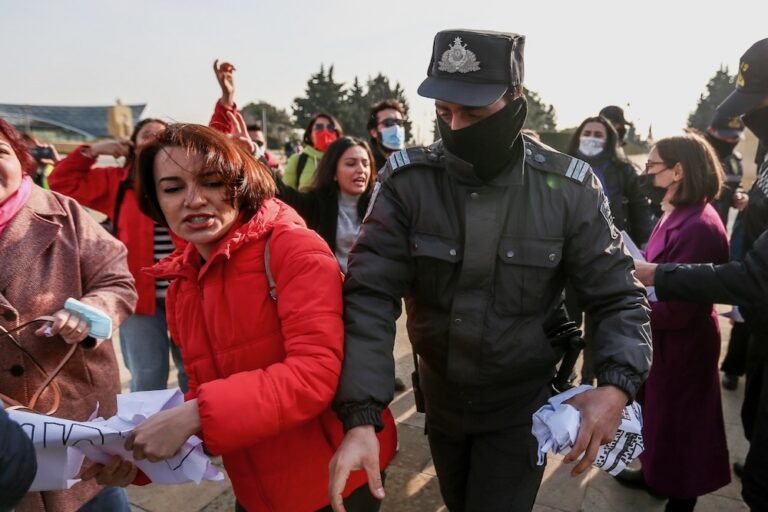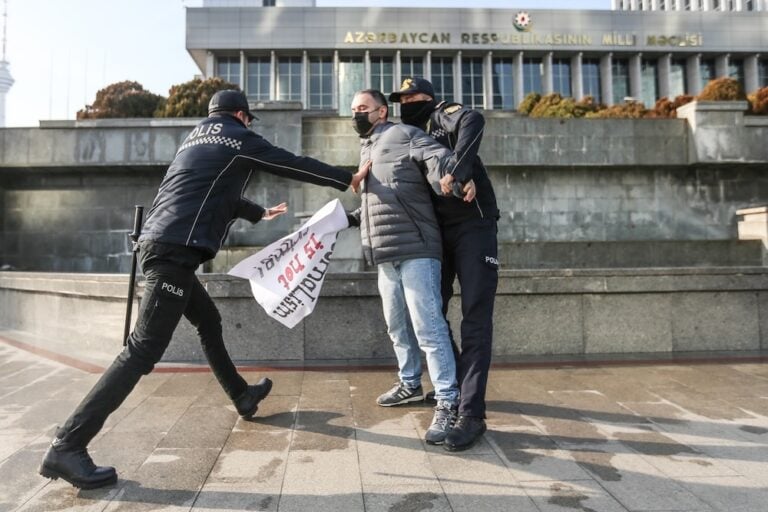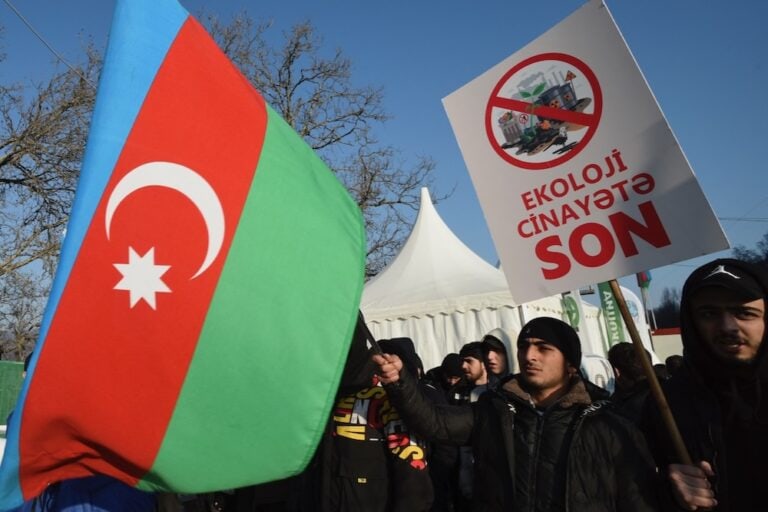After a short hearing, Eynulla Fatullayev was sentenced to detention in an isolation unit while he awaits trial on a drug charge that CPJ believes was fabricated against him.
(CPJ/IFEX) – New York, January 4, 2010 – The Committee to Protect Journalists demanded today that Azerbaijani authorities scrap a new trumped-up charge against imprisoned editor Eynulla Fatullayev, a 2009 recipient of CPJ’s International Press Freedom Award. On December 30, Fatullayev was charged with drug possession after prison guards allegedly found heroin in his cell. On New Year’s Eve, a Baku district court judge ordered the editor be tried on the fresh charge, following a late-night hearing that lasted just minutes.
Based on Fatullayev’s account and the government’s long record of persecuting the editor, CPJ believes the charge is fabricated.
At around 10 p.m. on December 31, Fatullayev was taken from Prison Colony No.12 to the Garadag District Court, his father, Emin Fatullayev, told CPJ. After a hearing that lasted about 15 minutes, a judge sentenced Fatullayev to two months of detention in an isolation unit while he awaits the new trial. On Saturday, he was moved to a unit in the village of Kyurdakhany, about 10 miles (15 kilometers) from Baku, according to local news reports.
Authorities have not yet set a trial date. If convicted of drug possession, Fatullayev faces up to three years in prison in addition to the eight-and-a-half-year term he has been serving since April 2007 on trumped-up charges of defamation, incitement of ethnic hatred, terrorism, and tax evasion. Three of those charges were instigated against him after he was already jailed, CPJ research shows.
“The government persecution of Eynulla Fatullayev is excessive in its zeal and scope,” said CPJ Europe and Central Asia Program Coordinator Nina Ognianova. “We call on Azerbaijani authorities to drop this absurd new indictment against him.”
On December 29, guards in Baku claimed to have searched Fatullayev’s cell and discovered 0.22 grams of heroin in a jacket, according to local news reports. Fatullayev categorically denied possessing the drug and said it was planted on him, defense lawyer Isakhan Ashurov told CPJ.
The government began prosecuting Fatullayev after he reported on a government cover-up in the unsolved 2005 murder of his colleague Elmar Huseynov.
The charge was filed as the European Court of Human Rights deliberates a case brought by Fatullayev against the government of Azerbaijan, alleging unjust prosecution. Emin Fatullayev told the Azerbaijani service of the U.S. government-funded Radio Free Europe/Radio Liberty that the new charge would ensure his son would remain in jail no matter what the European Court found. The court, based in Strasbourg, France, has authority to review the actions of domestic courts, issue rulings, and levy sanctions. As a member of the Council of Europe and a signer of the European Convention on Human Rights, Azerbaijan is bound by the court’s decision.
“It’s not hard to link the timing of this new charge to the European Court action,” Ognianova said.
CPJ research shows that Azerbaijani authorities have a history of planting drugs to silence critical journalists. In June 2006, Baku police arrested Sakit Zakhidov, a prominent reporter, poet, and satirist with the pro-opposition newspaper Azadlyg, on heroin charges. Zakhidov denied the charge and said a police officer placed the drug in his pocket during a staged arrest. Though Zakhidov told authorities he recognized the police officer who planted the drug on him and could identify him, the police officer was never investigated. Three days prior to Zakhidov’s arrest, Executive Secretary Ali Akhmedov of the ruling Yeni Azerbaijan party had publicly urged authorities to silence Zakhidov.
The new charge against Fatullayev is the latest instance of the government’s years-long persecution of the editor. His two newspapers, the Russian-language weekly Realny Azerbaijan and the Azeri-language daily Gündalik Azarbaycan, both of which reported critically about the government, are now closed.


